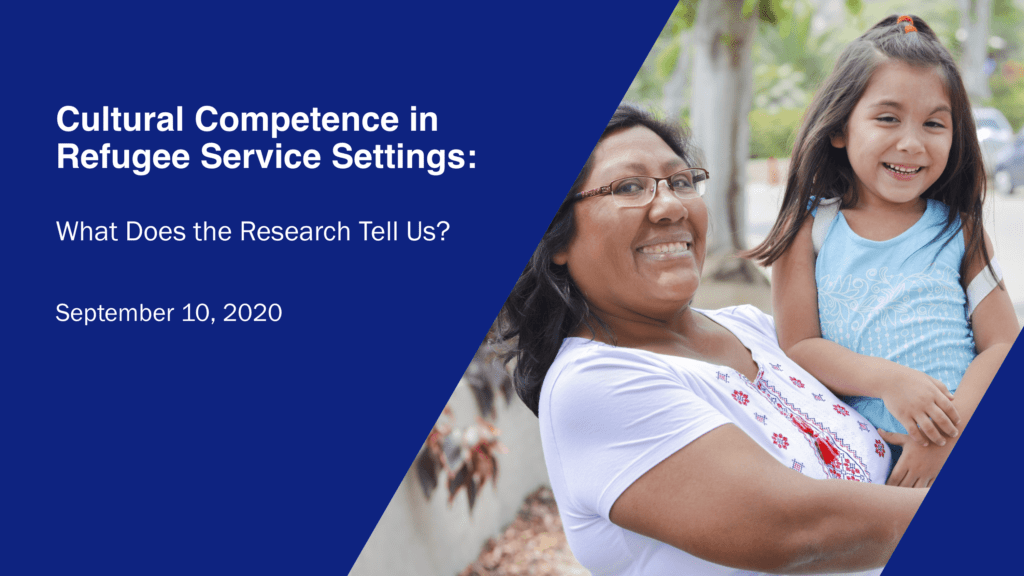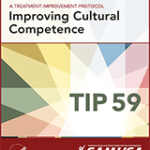Hosted on September 10, 2020, this webinar was facilitated by Ling San Lau, Senior Program Officer, Program on Forced Migration and Health at Columbia University, Mailman School of Public Health. Webinar panelists included Isabelle Darling, Clinical Lead Mental Health Consultant at the National Partnership for Community Training; Meheria Habibi, Senior Program Officer at the International Rescue Committee (IRC) in Tucson; and Michael Wessells, Professor of Clinical Population and Family Health at Columbia University, Mailman School of Public Health.
Refugees have unique, complex needs and strengths related to their cultural backgrounds and experiences of forced displacement and resettlement. Most of us are familiar with the term “cultural competence” and the importance of culturally appropriate services when working to support refugee clients. But providing culturally appropriate services is often complicated by unclear definitions and a lack of practical guidance. This webinar shared the findings of an original literature review on the topic of cultural competence in refugee service settings, highlighting key concepts and approaches described by refugee service providers and organizations. A Q&A session provided an opportunity to hear the perspectives of practitioners working with refugee and immigrant communities.
This webinar was aimed at front-line and management staff of organizations serving refugees and immigrants who are looking to better understand the evidence base related to cultural competence and culturally appropriate services for refugee communities. It was also relevant for health care providers (including clinicians and mental health professionals) serving refugee patients, and for academics and students with research interests in cultural competence.
By the end of this webinar, you will be able to:
- Describe the importance of cultural competence in refugee service settings;
- Summarize what the research says about cultural competence, including: how it is defined, criticisms of cultural competence, and the importance of an enabling organizational and structural environment; and
- Identify key individual- and organization-level approaches to culturally competent service provision.
Navigate this webinar with the timestamps listed below:
0:00 – Introduction to Switchboard
1:33 – Introduction to Speaker and Panel
2:43 – Learning Objectives for Webinar
4:42 – Examining Cultural Competence
9:26 – Discussing Scoping Review
12:16 – Individual-level Approaches to Foster Cultural Competence
19:42 – Organization-Level Approaches to Foster Cultural Competence
29:12 – Key Messages
31:39 – Q&A Panel







